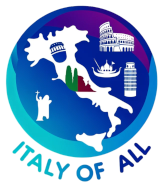Apulia (Puglia in Italian) is a region located in the southeastern part of Italy, forming the “heel” of the country’s “boot.” It is known for its long coastline, which stretches along the Adriatic Sea to the east and the Ionian Sea to the southeast, offering a plethora of stunning beaches, picturesque sea cliffs, and charming fishing villages.
The region is divided into six provinces: Bari (the regional capital), Brindisi, Foggia, Lecce, Taranto, and Barletta-Andria-Trani. Apulia is celebrated for its rich history and cultural heritage, with influences from the Greeks, Romans, Byzantines, Normans, and others who have left their mark on the architecture, traditions, and cuisine of the region.
Apulia is renowned for its distinctive whitewashed hill towns, particularly in the Valle d’Itria area, with Alberobello being famous for its trulli houses—unique conical-roofed structures that are now recognized as a UNESCO World Heritage Site. The region also boasts significant historical sites such as the Castel del Monte, another UNESCO site, and the beautiful Romanesque cathedrals in cities like Trani and Bitonto.
The Apulian landscape is characterized by its vast olive groves and vineyards, making it one of Italy’s leading regions for olive oil production. The cuisine of Apulia is a testament to its agricultural bounty, emphasizing fresh vegetables, legumes, seafood, and pasta dishes like orecchiette. The region’s food is often described as simple yet flavorful, embodying the Italian concept of cucina povera (peasant cooking).
Apulia’s economy is traditionally based on agriculture, particularly olive oil and wine production, but in recent years, it has seen significant growth in tourism, attracted by its natural beauty, historic sites, and culinary traditions. The region’s long summers and mild winters make it a popular destination for both Italian and international visitors seeking to explore its coastal resorts, historic towns, and rural countryside.
Comuni in Apulia Region:
- Bitetto
- Anzano di Puglia
- Bitritto
- Accadia
- Ascoli Satriano
- Alliste
- Alberona
- Bari
- Aradeo
- Altamura
- Binetto
- Andria
- Bitonto
- Andrano
- Bagnolo del Salento
- Acquarica del Capo
- Adelfia
- Alessano
- Avetrana
- Alberobello
- Apricena
- Alezio
- Barletta
- Alfano
- Acquaviva delle Fonti
- Cavallino
- Cannole
- Casamassima
- ** Brindisi
- Castellana Grotte
- Caprarica di Lecce
- Bovino
- Castelnuovo della Daunia
- Castri di Lecce
- Castrignano del Capo
- Calimera
- Carosino
- Cagnano Varano
- Carlantino
- Castelluccio Valmaggiore
- Carpino
- Casalvecchio di Puglia
- Castellaneta
- Capurso
- Castrignano de’ Greci
- Casarano
- Campi Salentina
- Carapelle
- Carovigno
- Casalnuovo Monterotaro
- Castelluccio dei Sauri
- Cisternino
- Corigliano d’Otranto
- Corsano
- Copertino
- Diso
- Corato
- Cutrofiano
- Fragagnano
- Celle di San Vito
- Cellamare
- Cerignola
- Collepasso
- Deliceto
- Ceglie Messapica
- Fasano
- Celenza Valfortore
- Cellino San Marco
- Chieuti
- Foggia
- Faggiano
- Margherita di Savoia
- Lizzano
- Leporano
- Lucera
- Lizzanello
- Martignano
- Lequile
- Grottaglie
- Mattinata
- Gagliano del Capo
- Gravina in Puglia
- Massafra
- Galatone
- Locorotondo
- Gioia del Colle
- Lecce
- Melpignano
- Grumo Appula
- Martano
- Lesina
- Maglie
- Francavilla Fontana
- Melendugno
- Marcedusa
- Matino
- Guagnano
- Leverano
- Martina Franca
- Ischitella
- Manfredonia
- MelissaMelissano
- Laterza
- Parabita
- Ortelle
- Mesagne
- Mola di Bari
- Novoli
- Patù
- Panni
- Morciano di Leuca
- Modugno
- Palagiano
- Monteparano
- Palo del Colle
- Montemesola
- Otranto
- Noci
- Nardò
- Orsara di Puglia
- Ostuni
- Mirto
- Muro Leccese**
- Palagianello
- Nociglia
- Orta Nova
- Miggiano
- Palmariggi
- Monopoli
- Minervino Murge
- Monte Sant’Angelo
- Minervino di Lecce
- Ordona
- Noicattaro
- Monteroni di Lecce
- Roccaforzata
- Putignano
- Presicce
- Poggio Imperiale
- Sammichele di Bari
- Salice Salentino
- Rocchetta Sant’Antonio
- Poggiorsini
- San Cesario di Lecce
- Rutigliano
- Rignano Garganico
- Poggiardo
- Ruvo di Puglia
- Peschici
- Pietramontecorvino
- San Paolo di Civitate
- San Vito dei Normanni
- Sava
- Stornara
- Sanarica
- San Severo
- Sant’Agata di Puglia
- Spinazzola
- San Nicandro Garganico
- San Marco la Catola
- Serracapriola
- San Pietro in Lama
- Seclì
- San Marco in Lamis
- Santa Cesarea Terme
- San Michele Salentino
- Squinzano
- Spongano
- Sogliano Cavour
- Santeramo in Colle
- Sannicola
- Sannicandro di Bari
- San Pietro Vernotico
- San Giorgio Ionico
- Scorrano
- Sternatia
- Soleto
- Stornarella
- San Donato di Lecce
- San Donaci
- San Pancrazio Salentino
- Zollino
- Triggiano
- Vieste
- Surano
- Uggiano la Chiesa
- Taranto
- Volturara Appula
- Trinitapoli
- Volturino
- Trepuzzi
- Torre Santa Susanna
- Turi
- Torremaggiore
- Isole Tremiti
- Torchiarolo
- Veglie
- Toritto
- Ugento
- Surbo
- Torricella del Pizzo
- Villa Castelli
- Taurisano
- Tricase
- Vico del Gargano
- Zapponeta
- Terlizzi
- Trani
